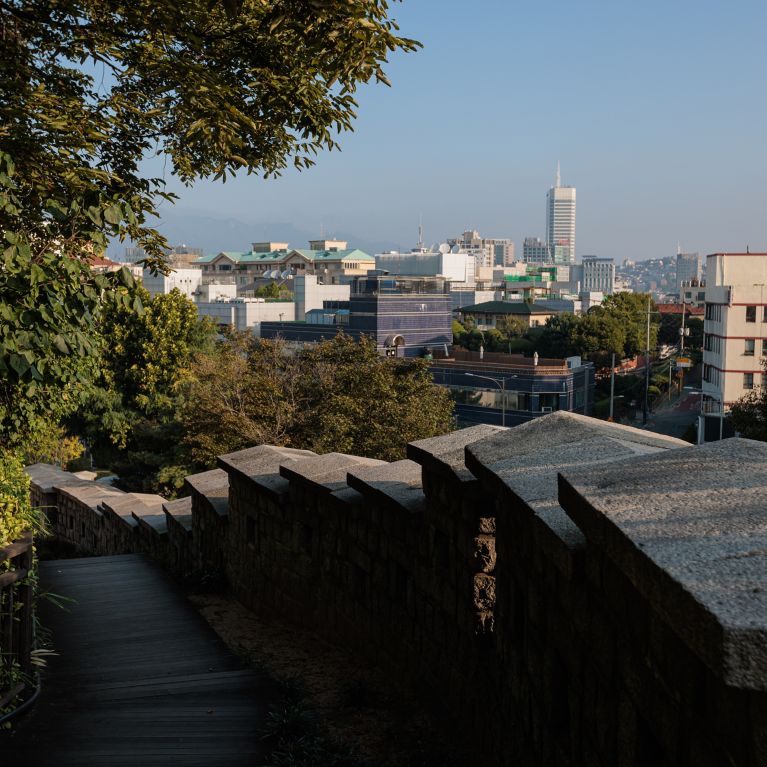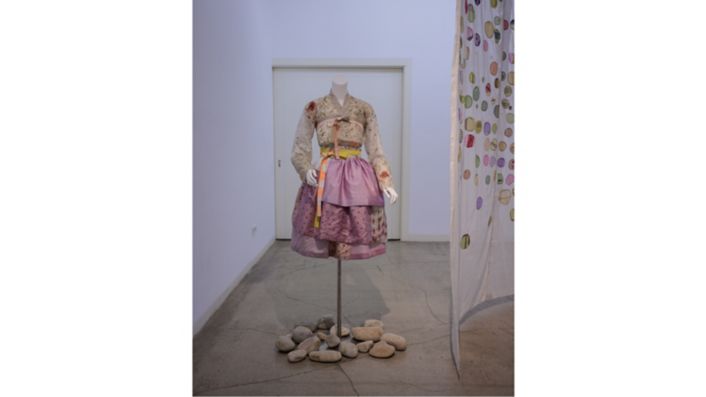In the current ever-evolving cultural landscape, one phenomenon has taken center stage with an undeniable allure: Koreanness. South Korea is trending – from the bustling streets of Seoul to the runways of Paris, Korean culture has captured the world’s attention. K-Beauty, K-Pop, K-Food, K-Fashion… Korean trends are everywhere and are seen as the most modern and advanced influences. But why? What makes K-Everything so special? Why is the world looking for a glimpse of Koreanness?
Korean Heritage
The appeal of Koreanness goes beyond fashion and beauty; it is a cultural phenomenon that extends to music, food, and lifestyle. The global success of K-Pop stars, and the increasing attraction for Korea’s innovative cosmetics and technologies have sparked a crescent interest in Korean culture.
Where and how did this start?
Marked by its authenticity, innovation, and timeless elegance, Korean culture cannot be understood without the country’s heritage. At the heart of the “Korean Wave” (Hallyu) there is a profound respect to tradition, a thread woven through the fabric of modern expressions.
Korean tradition is a very special one, where centuries-old customs and craftsmanship seamlessly integrate with contemporary design. With this philosophy, it is no surprise to discover that Korean heritage holds the keys to the Korea of tomorrow. Digging deeper into the country’s history unearths ancestral pottery and early folklore amongst its oldest roots. Jump forward to today, and references from Neolithic artefacts are merged with modern technologies to connect the past with the present and forge a vocabulary that is also responsibly engaged with the concerns of contemporary society, such as the commitment for a more sustainable future.
A firm belief in the future has run throughout Korean history. Korean dynamism is always turning towards what comes next, renewing life energies from within. From the hand-written calligraphy of the ancients to the streamlined futurism of the Hangul alphabet, there is the same strength of simplicity and integrity.
Let’s dig deeper in some of the most famous Korean trends and try to unveil the secrets of this culture’s allure.
K-Pop
If there is one thing that has resonated all around the world, putting Korea in the map, it’s K-Pop. This genre has evolved into a cultural manifestation that goes beyond music, transcending all barriers and uniting fans worldwide.
With its catchy beats, synchronised choreographies, and visually stunning music videos, K-Pop groups like BTS or BLACKPINK have become international icons, captivating hearts and playlists globally. Beyond the stage, K-Pop represents a fusion of the past and the future, from traditional Korean music to global pop trends, creating a unique landscape.
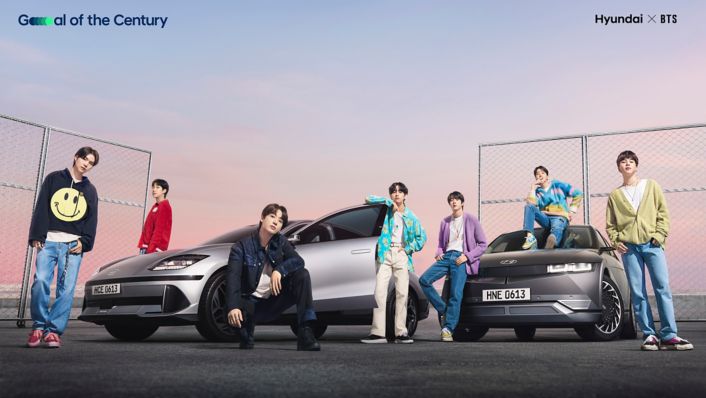
K-Pop is no longer only about the lyrics or the melody, it has created a world of fan culture that fosters a sense of community and shared identity among its listeners. As the genre continues to redefine the music industry, K-Pop stands as a testament to the power of artistic expression to connect people across the world, celebrating diversity and embracing the universal language of melody and rhythm.
K-Food
No exploration of Koreanness would be correct without the culinary wonders that have arrived to each corner of the world. Food is a longstanding vehicle for the diffusion of Korean culture. Korean cuisine, with its bold flavours, meticulous preparation, and strong sense of sharing, has become a global sensation. From the umami-rich depth of kimchi to the savory perfection of bibimbap, Korean food is a symphony of tastes that captivates the senses. Renowned chefs and food enthusiasts worldwide are drawn to the complexity and balance inherent in Korean dishes, elevating them to gourmet status.
Wrapping of flavours, savouring the moment, engaging with textures: in Korea, eating is an elevated experience full of consciousness, as intentionally created and consumed as temple food. Inherited from the cultural memory of early Korean nomadism, fermentation confers longevity to cuisine and those consuming it: this simple yet sophisticated culinary asset reflects a growing global appetite for conscious consumption.
K-Beauty
In the realm of beauty, Koreanness has emerged to become a leading and transformative force, redefining standards and inspiring a global skin-care revolution.
What is the secret for the success of K-beauty? As for music or food, it lies in the combination of heritage and innovation. Korean skincare products are celebrated for their innovative formulations, often incorporating natural ingredients like ginseng, snail mucin, and green tea. Renowned K-beauty brands combine cutting-edge technology with traditional herbal remedies, creating products that captivate the whole world.
K-Beauty is not a skin-care routine, it is a lifestyle. In a world dominated by heavy makeup trends, Koreanness embraces natural beauty, inclusivity and health, redefining and inspiring beauty trends on a global scale.
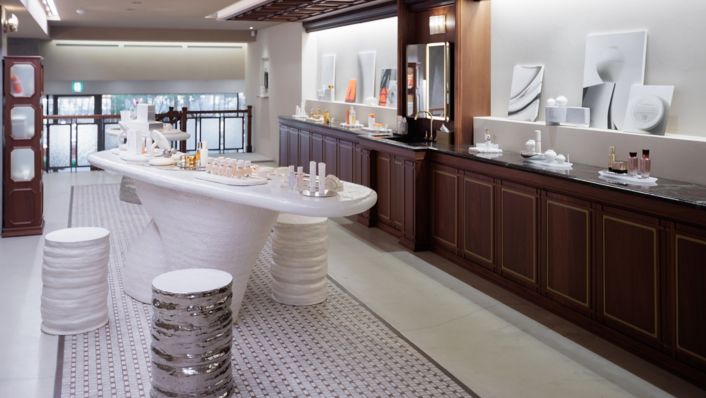
K-Couture
Also the global realm of high-fashion is deeply influenced by Koreannes. K-Couture has emerged as a captivating fusion of Korea’s rich heritage and avant-garde design. Similarly to what K-beauty has achieved in the world of cosmetics, Korean designers have transformed the very essence of couture worldwide. At the forefront is a generation of visionary designers who seamlessly blend traditional Korean elements with contemporary aesthetics.
The catwalk at Seoul Fashion Week, for example, becomes a theater of artistry, showcasing designs that pay homage to centuries-old craftsmanship while pushing the boundaries of modern fashion. From the intricate embroidery depicting Korean folklore to the use of vibrant colors inspired by traditional art, each garment tells a story that transcends time. Designers delve into the heritage of Korean fashion, infusing their creations with a profound sense of identity and pride.
Seoul Style: where heritage meets trend
Today, K-Culture is no longer solely focused on the ultra-modern, high-tech “newness” that South Korea has become known for. The new, younger, generations are moving into and celebrating the older buildings, neighbourhoods, cafés, and restaurants in Seoul. Not only are the “new” kids on the block bringing their fresh energy to these spaces, but they are blending into the “old” Seoul and creating something entirely new. This is the birth of a new and genuine form of K-Culture.

Seoul, the vibrant capital of South Korea epitomises this mix of new and old. It is one of the most technologically advanced cities in the world, but certain districts make you feel like you’re taking a trip back into the past. The new parts of Seoul, such as Gangnam, show the city's contemporary spirit. Skyscrapers pierce the skyline, and when you wander between them the streets are alive with a vibrant energy where you can see cutting-edge technology all around you.
Yet, it is the old parts of the city, such as Bukchon Hanok Village where you will find Korea’s cool young generation. Walking through these narrow alleys lined with traditional hanok houses and standing in the shadows of the great palaces you can feel the buzz of the new “old” city.
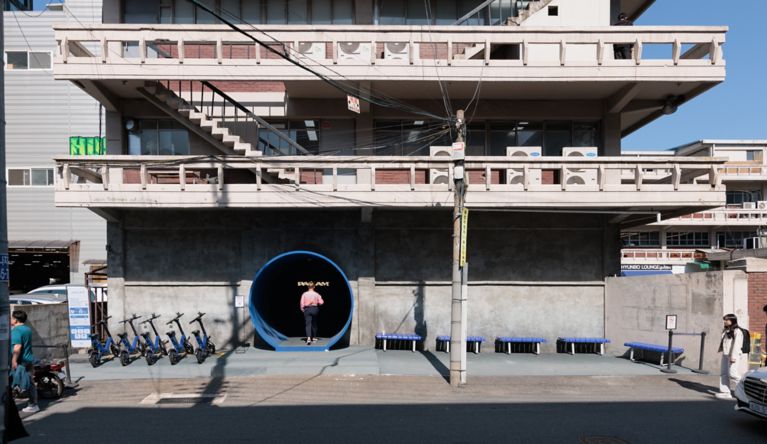
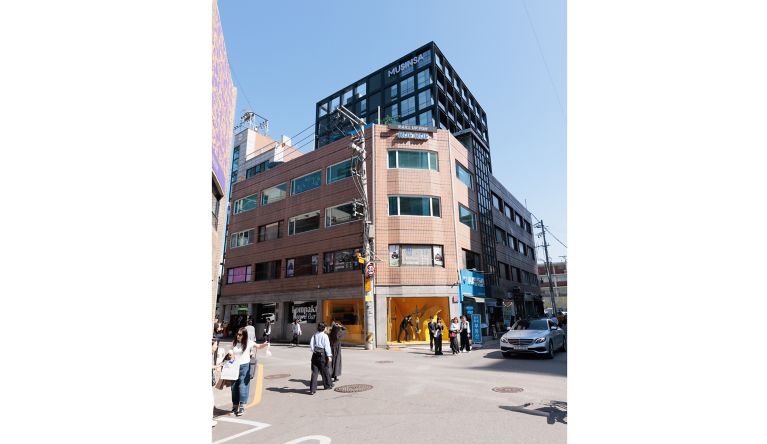
Hyundai: past, present and future
South Korea's dynamic fusion of past, present, and future finds a remarkable anchor in a company that has significantly shaped the nation's trajectory since the aftermath of the civil war.
The indomitable vision of Hyundai Motor Founding Chairman Ju-yung Chung, driven by a profound "desire for better," manifested in Korea's first national automaker. Emerging from the ashes of the devastating conflict, Chung dedicated himself to rebuilding Korea's economy, exemplifying the resilience and adaptability ingrained in the South Korean spirit. Post the Korean War, Chung played a pivotal role in the country's industrialization, starting with the construction of roads, vital networks for connecting the country. Never stopping in his pursuit of a better future, Chung soon broadened the scope of Hyundai to different fields, amongst which automotive, with the birth of Hyundai Motors.
The birth of the Hyundai Pony in 1975 marked a transformative moment, representing not just a mode of transportation but a source of national pride amid the nation's unprecedented growth. This small yet iconic vehicle became a symbol of progress for a generation driving Korea's social and economic modernization in the 1970s and 1980s.
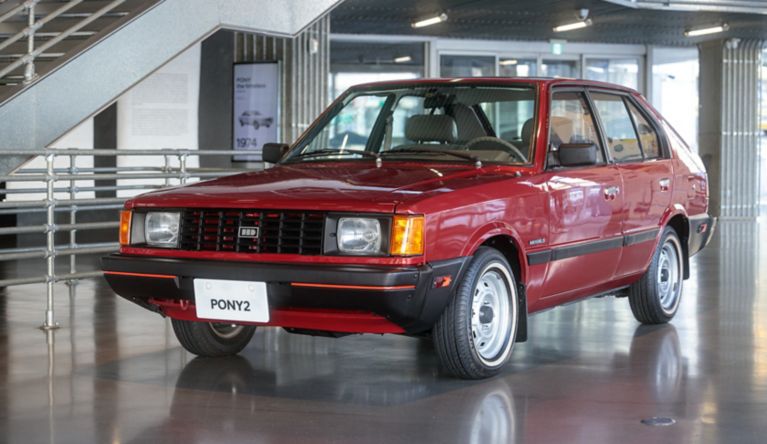

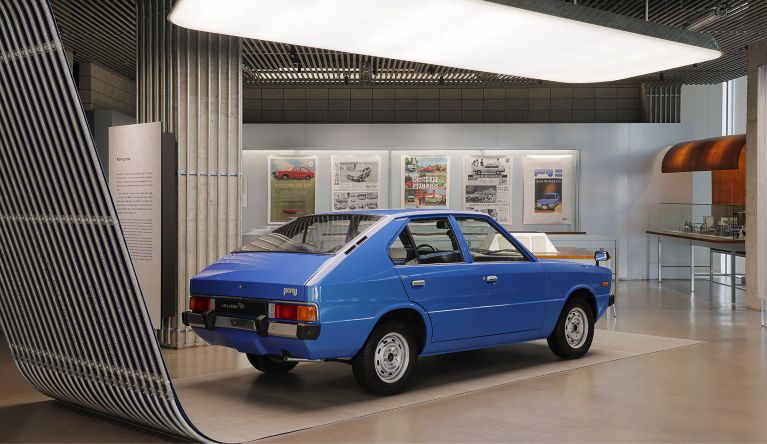
Chung's vision of enhancing lives through mobility aligns with Hyundai's enduring commitment to "Progress for Humanity," evident in the company's shift toward electric cars and sustainability. Drawing inspiration from both Korean heritage and future aspirations, Hyundai's recent models, such as the award-winning IONIQ 5, IONIQ 5 N, and N Vision 74, pay homage to the Pony's classic design while embracing cutting-edge innovations.
Hyundai's design palette reflects a unique blend of traditional Korean elements, from architecture to cultural elements, and the contemporary influence of K-Pop, K-Beauty and K-Fashion. The company's commitment to innovation extends beyond design, positioning itself at the forefront of the automotive industry's transformative journey. As cars evolve into zero emission mobility platforms, Hyundai is leading the charge, embracing groundbreaking challenges in Advanced Air Mobility, robotics, self-driving vehicles, and more. Rooted in the founding chairman's spirit and the dynamic essence of Korea, Hyundai continues to pioneer an innovative future, seamlessly blending the nation's rich history with its forward-looking vision since its inception.


